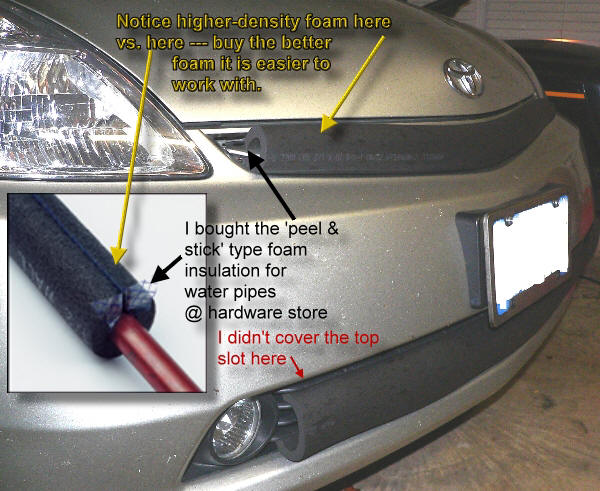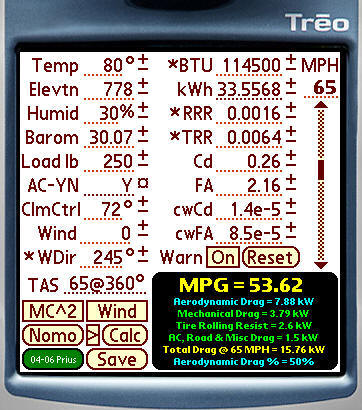
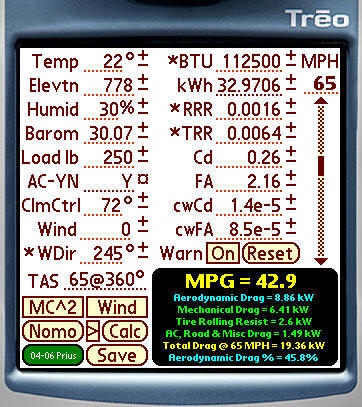
How Badly will cold weather hurt my mileage?
As we we saw earlier, wind can be quite detrimental to mileage and in the winter months, so can rain, snow & slush. If we were to leave out the winds, rain, snow, ice & slush and pay attention only to the change in temperature, we would see a very significant drop in mileage. Let's take a nice 80 ºF day as a baseline. The first screenshot below shows us our 80 ºF day giving us 53.62 MPG @ 65 MPH. The second screenshot shows us a cold 22 ºF that drops us from 53.62 to 42.9 MPG. Notice also that the BTU field dropped from 114,500 to 112,500 BTU. This BTU drop is caused by the fuel that is distributed in the winter months which has a lower energy content per gallon as oxygenates are added to the fuel in the winter to assist combustion. Many of the US refineries now uses ethanol as a winter gasoline oxygenate having converted recently from MTBE (methyl tertiary-butyl ether) per federal law. The winter blended fuel which has 2,000 less BTU per gallon only robs this particular simulation setup of .76 MPG so, cold temperatures are the main culprit for robbing us of MPG in the winter months.


Each of the energy breakdown screens below associate with the screen directly above it. Notice that aerodynamic energy usage goes from 7.88 kW to 8.86 kW & the mechanical energy usage goes from 3.79 kW to 6.41 kW.
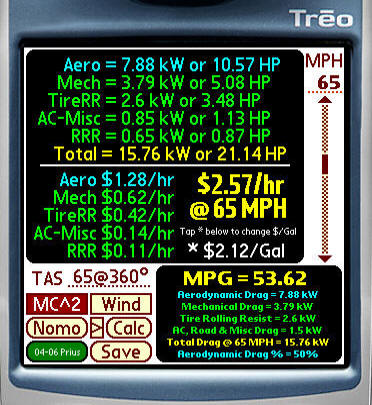
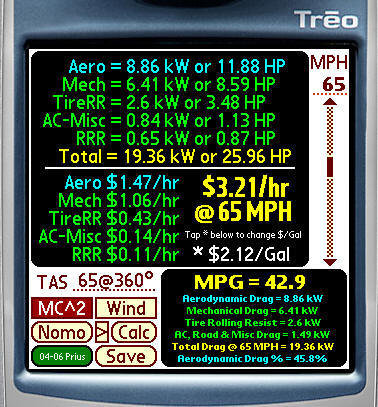
Cold air is more dense than warm air and it simply takes more energy to cut through. In this case it takes about 11% more energy to cut through the cold wind. The mechanical energy increase (70%) is due mostly to thicker lubricants (both oils & greases), stiffer seals & the ICE needing to operate longer & more often to keep the emissions equipment & the passengers warmed up. One thing that many Prius users have done is switch to freer flowing, low viscosity synthetic oils to offset the losses experienced with common mineral based motor oils which tend to thicken more than synthetics in cold temperatures. Other Prius owners have blocked some of the cold air that is normally allowed to enter the engine compartment & others have devised ways to admit pre-warmed air to the engine air intake
